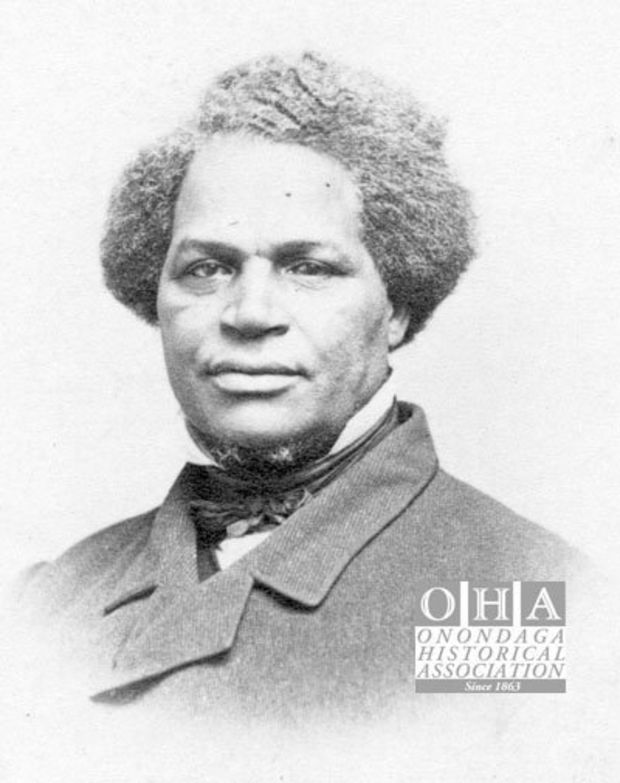
On Sept. 30, 1872, the Rev. Jermain Wesley Loguen died. Born into slavery in Tennessee in 1814, he escaped in 1834 by stealing a horse and traveling north. Loguen eventually settled in Syracuse, where he became a school teacher and a clergyman. He married Caroline Storum and they had six children. Their daughter Amelia would marry Lewis Douglass, son of famed orator and abolitionist Frederick Douglass, and another daughter, Sarah, would be one of the first African-American women to become a licensed medical practitioner. As active abolitionists, the Loguen home became a busy station on the Underground Railroad. Jermain played a prominent role in organizing the rescue of William “Jerry” Henry in 1850. Loguen is buried in Oakwood Cemetery.
Jermain Loguen arrived in Syracuse in 1841 and became pastor (and later bishop) of the African Methodist Episcopal Zion Church, as well as a teacher, abolitionist, lecturer, and Underground Railroad agent. Loguen lived at 293 East Genesee Street from 1848-1850. By the 1850s, this was the most important Underground Railroad safe house in Syracuse and soon gained the nicknames “King of the Underground Railroad” and “prince of the Underground Railroad.”
Frederick Douglass, a frequent visitor to this house, described the Loguens’ welcome of nine people who arrived here from slavery:
“The night was exceedingly dark and the rain was very heavy. . . . The children were sick and the rain increasingly in violence, and the walk of a full mile-and-a-half before the pilgrims, and two of these are wholly unable to walk. . . . We had scarcely struck the door when the manly voice of Loguen reached our ear. He knew the meaning of the rap and sang out, “Hold on!” A light was struck in a moment. The door opened, and the whole company, the writer included, were invited to. Candles were lighted in different parts of the house, fires kindled and the whole company made perfectly at home. The reception was whole-souled and manly one, worthy of the noble reputation of brother Loguen.” Post-Standard, November 18, 1857.
— Dan Connors of the OHA

